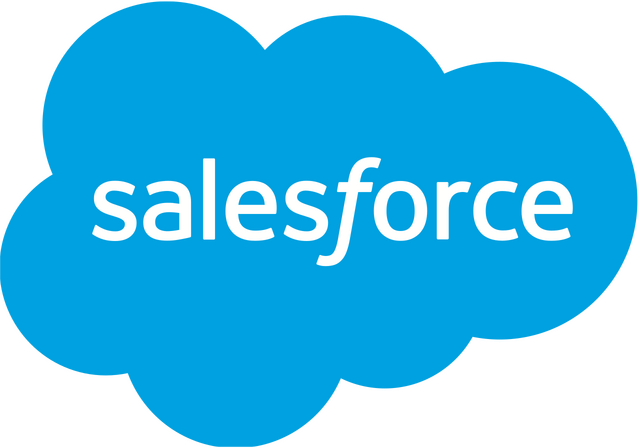What you need to know to expedite getting cash in the door
Salesforce is designed to be an open and flexible single cloud platform that grows with your business. The entire purpose of the Salesforce platform is to simplify your complex business process after all. Unfortunately, the reality is that many companies are still experiencing massive hiccups during their Salesforce implementation that can easily be avoided with a few key steps.
A lack of customer focus, transparency, and communication are just some of the reasons implementation partners report experiencing serious churn before the first user ever logs in. With over 15 years of experience working in the Salesforce platform, we want to share what we’ve learned so you can avoid the same pitfalls and experience the most seamless Salesforce implementation for your business. Let’s get started!
Avoid order takers
The consulting partner you choose for your Salesforce implementation should be a team you trust to advise you on the process and best practices. Unfortunately, there are a lot of consultants who are more “order takers” than anything else. They’ll ask, “what are your requirements?” instead of understanding your requirements.
A great consultant will give you push back and ask the questions you need to move your business forward. And most importantly, they’ll understand your practices so you can avoid unnecessary setbacks that will make your implementation far less efficient later on.
“Consulting isn’t as simple as picking up an order at Starbucks,” says Stephanie Picardi, CEO of VFP Consulting. “Your implementation partner shouldn’t just be taking your order and serving it up. A good implementation partner will consult on the process, not the product. They will keep their eye on current opportunities and long-term scalability in order to advise on the best business design process.”
Communicate with your implementation partner
There is a huge opportunity lost when people work in silos and don’t consider the entire team involved. And most businesses will agree. In a recent study, 86% of polled executives and employees blame a lack of collaboration and bad communication for team failures.
The goal of integrating your business into Salesforce is to streamline across multiple functions so you can avoid the pitfalls of working in silos.
At VFP Consulting, we allocate time for having conversations with our customers to ensure that any new process changes will work for departments across the board, including the finance, support, and order management teams. If we don’t, customers end up with a process without full buy-in and missing requirements, as well as poor alignment on data and maintenance.
It’s important for both you, as the customer, and your implementation partner to consider all the players when integrating your business in Salesforce. The right decision-makers need to be involved from the start, with expectations on time required outlined upfront.
“People often underestimate the effort required, “ says Picardi. “There’s a lot to consider which is why the right conversations need to happen in order to avoid process gaps early on.”
A good implementation partner will consult on the process, not the product. They will keep their eye on current opportunities and long-term scalability in order to advise on the best business design process.
Stephanie Picardi, CEO
Find the middle ground between too much and too little process
A business fully integrated under one platform like Salesforce allows for flexible automation, validation, and workflow. It can also be a double-edged sword and requires an implementation partner that will be your steward in making sure you strike the right balance. Too much system enforcement will drive people to resort around the system. It’s important that you can adapt easily to changing sales and delivery models.
Your Salesforce handoff should also be seamless and automated. Regrettably, in many implementation situations, you’ll find different departments having to put in a lot of extra work in order to effectively get the information out the door.
Look for a consultant that will advise and guide, and keep gates like approvals and processing to a minimum so that your business’s integration into the Salesforce platform isn’t unnecessarily put on pause. A consultant’s tools and expertise should make things more efficient, not hinder your process.
Make it easy to pay
If you do it right, you won’t ever need a days sales outstanding in place. The software and the process a great Salesforce implementation partner sets you up with will expedite getting your cash in the door.
“If your new process does anything other than streamline- your implementation consultant did it wrong,” says Picardi.
Just like it’s not fun discovering an added charge after dining at a restaurant, it’s not fun to learn about extra costs upon signing your contract. There should be no surprises when a customer sees the final contract, whether during their Salesforce implementation or in their own sales cycle.
In fact, both businesses and implementation consultants should consider the quote sign off as authorization to move forward with the contract- so a sales rep should give customers exactly what the invoice will reflect. Same content, same quantities, same prices, and the same text. If a sales rep doesn’t, they risk the dreaded customer churn and customers spending a lot of time asking questions.
The software and the process a great Salesforce implementation partner sets you up with will expedite getting your cash in the door
Decide on your outcomes in advance
In a complex service implementation, it’s important to think about the full scope and parameters upfront. Building the project without deciding ahead of time what the outcomes are – especially the kind of analytics you want and the way you want your organization to make decisions- can lead to oversights that leave everyone feeling uncomfortable.
It’s easy to get lost in translation with multiple platforms and teams. A lack of planning will often lead to organizations adding people to projects later than at the outset and putting down milestone dates without securing the resources to do it first. This is where you and your implementation partner should come in as the core team to determine outcomes in advance and what it will take to achieve these goals, in order to ensure optimal transparency and success.
Successful integration into the Salesforce platform should leave your business stronger, streamlined, and with a shorter sales cycle overall.
At VFP Consulting, we live and breathe quote-to-cash automation in Salesforce.
Interested in what we can do for your business?












